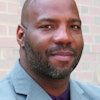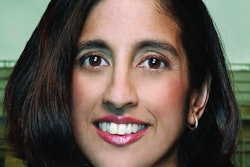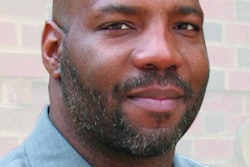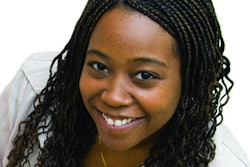Between Enron and the Wall Streetinduced credit crisis that has thrown the world economy in turmoil, business ethics and entrepreneurship professors like Dr. Laquita Blockson are in short supply.
Blockson, who gave up a lucrative career in corporate America for academia, hopes her research — on the marriage of business and social responsibility — can inform and influence responsible business practices.
“People have a negative perception of what business does and some perceptions are valid,” Blockson says. “But businesses can and do contribute to society in a number of positive ways. A lot of my work speaks to how businesses can engage within society in a way that allows them to be not just relevant but also socially responsible.”
Blockson’s groundbreaking research, including a Ewing Marion Kauffman Foundation-grant-funded collaborative effort with a number of colleges across the country, has focused on high-growth firms owned by Black women. As a Black woman, she has particular interest in studying this often overlooked group’s entrepreneurship behaviors. Past research focused on profitability as the main indicator of a business’ success. But Blockson finds Black women tend to define success much more broadly.
Other factors were “equally as important or more important than economic success … so while economics was important, it was not the sole or primary factor,” says Blockson.
These business owners consider themselves successful if they are providing a legacy for their families, serving as a role model and hiring within their communities, providing stability in their neighborhoods, achieving worklife balance, and fulfilling a spiritual calling or passion.
Though not an entrepreneur herself, Blockson fits the mold of many of the business women she studies. Like them, she sees her work within a broader context. Blockson says her goal is for her research to “help influence the current and next generation of minority and women entrepreneurs. But also I want to influence business in general to operate in a more socially responsible manner.”
She’s making her mark through the academy, thanks to the business professors at Florida A&M University, where she earned her bachelor’s and master’s degrees. Fascinated by numbers as a little girl, she loved tax season since the first time she filled out her 1040 as a teenager and wanted to be a certified public accountant. But through her FAMU professors, she saw other possibilities.
“It was great to have so many minority professors. I thought, wow, I can see myself in their shoes,” Blockson says. FAMU professors told her, “Yes, definitely become a professor! But, once you graduate [from FAMU], get some real world experience first. Then come back [to doctoral study],” Blockson recalls.
Though her research and teaching responsibilities keep her busy, mentoring the next generation of minority professors and serving the community are just as important for her. During her Ph.D. dissertation process, Blockson relied on a supportive network of peers she met through The PhD Project, which aims to increase the numbers of underrepresented minorities in academia and business.
Blockson has been recognized for her work encouraging the next generation of minority professors and entrepreneurs. The Academy of Management recognized her with its 2005 Best Mentoring Practices award for her role co-founding the Management Faculty of Color Association. Inspired by the support she received in The PhD Project, Blockson, along with Dr. Ian Williamson of the Melbourne Business School, cofounded the organization in 2001 to offer social and professional support to Black, Hispanic and Native American business management faculty. Earlier this year, the College of Charleston’s Office of Multicultural Affairs named Blockson business faculty of the year.
Dr. Jeffrey A. Robinson, who met Blockson through The PhD Project, lauds her work’s blend of disciplines and emphasis on social responsibility. “She’s one of a few people who really tries to integrate business and social issues in the same research. When you’re able to cross those boundaries, you’re doing something unique in the academy,” says Robinson, who is now the assistant director of the Center for Urban Entrepreneurship & Economic Development at Rutgers Business School.
“Her work has consistently done that in ethics, community and economic development, and entrepreneurship in terms of African-American women,” he adds. “All those issues cross the gap between what’s thought of as business scholarship and research about sociology or urban development. It’s great work and makes a social impact in the world. It’s not just research for research’s sake.”
Title: Assistant Professor of Ethics and Entreprenuership
Education: Ph.D.,Strategy, Environment and Organizations, University of Pittsburgh; MBA, Business Administration, Florida A&M University


















